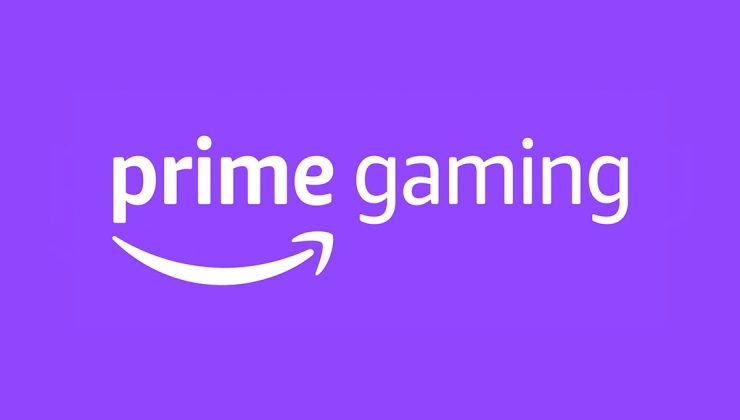Doing the rounds across the net right now is a small update to the Steam checkout process when you're making a purchase, to make it clear you don't own what you buy.
Valve added a note (I don't entirely know when), to mention how "A purchase of a digital product grants a license for the product on Steam" with a link to the Steam Subscriber Agreement. As you can see in my shot below taken today when testing a purchase:
Of course, there's already a lot of misinformation going around about this from people on social media. To remind everyone: this has always been the case. The Steam Subscriber Agreement says (if you bothered to read it, you all read agreements right?) "The Content and Services are licensed, not sold. Your license confers no title or ownership in the Content and Services".
So while this has always been the case, it is still somewhat buried because most people just quickly scroll through these things to get access to what they want. At least now, Valve has put it upfront every time you make a license purchase on Steam.
Why is all this happening now? You can likely thank a new California law on this (AB 2426) that is summarised as:
Existing law makes it unlawful for any person doing business in California and advertising to consumers in California to make any false or misleading advertising claim. Existing law makes a person who violates specified false advertising provisions liable for a civil penalty, as specified, and provides that a person who violates those false advertising provisions is guilty of a misdemeanor.
This bill would, subject to specified exceptions, additionally prohibit a seller of a digital good from advertising or offering for sale a digital good, as defined, to a purchaser with the terms buy, purchase, or any other term which a reasonable person would understand to confer an unrestricted ownership interest in the digital good, or alongside an option for a time-limited rental, unless the seller receives at the time of each transaction an affirmative acknowledgment from the purchaser, or the seller provides to the consumer before executing each transaction a clear and conspicuous statement, as specified. By expanding the scope of a crime, this bill would impose a state-mandated local program.
GOG took the opportunity to jump into this as well on Twitter / X with a post suggesting they will be adding a note onto their checkout process too, to say that their offline installers they offer cannot be taken away from you:
The new law doesn't seem to actually affect GOG, since in the main bill text it does specifically note it does not apply if they have access to a permanent offline download. However, it should be noted GOG also sell you a license as per their own terms. So while the new bill may not apply to them, this little jibe only really properly works if people are backing up all of their GOG purchases. Since you only get a license, rights holders could still technically get GOG to entirely remove them.
I should also note that this situation is the same for most physical media too, it's not a digital distribution only issue for consumers. Much like GOG's offline installers, you have access to your physical media whenever you want, but you still only get a license for the media you have on disc - you do not own it.
Over to you in the comments, what are your thoughts?
What is ownership?
You don't know? Please read the manual!
What is ownership?
A concept invented by the bourgeoisie to enforce class society and the domination over the oppressed peoples of the world by the ruling class.
Is that the answer you were looking for?
I want to add that there are many DRM-free games on Steam which you can back up similarly to GOG games. The difference is GOG lets you store the installer. With Steam games, you crudely compress one or two game folders (depending on whether it's using Proton). You would not want to rely on Steam's built-in backup tool.
For me, that's also the gap with GOG. At some point, people would be sitting on gigabytes of binary data. Most of it for on premise Windows.
Last edited by 1xok on 13 Oct 2024 at 3:33 pm UTC
What is ownership?
a word that cannot be translated literally into spanish?
Wait that isn't right.
When stealing isn't buying...
Ehh...
Wait, no, sorry, wrong decade...
Shame GOG's Linux support is rather... lacking. Wine not withstanding.
Could have fooled me as I own hundreds of Linux games from GOG. I find Steam's stance on DRM free to be lacking. I know you were trying to take a dig at GOG's lack of a Linux client but I am one of the people who don't want a client. GOG's offline installers give me exactly the experience I want.
Last edited by satoridepon on 13 Oct 2024 at 5:40 pm UTC
As a gamedev I'm not enamored with Steam, but as a consumer they are great. I'm just waiting for the day to come when a leadership change at Steam causes it to become someone I hate as a consumer too. :-\
I think Valve must add an option for developers to mark their games as DRM-free, because many people apparently don't know that it's possible on Steam too and that some games they may have purchased are DRM-free
I would agree that they should add that. I for one know about it but so far the only way I can find out on a per game basis is the say so of some randos on the internet which isn't good enough for me. I don't have to guess with GOG.
Last edited by PublicNuisance on 13 Oct 2024 at 5:49 pm UTC
As far as i know, you still need the steam client to restore those backups
You don't need Steam client to restore if you just copy or tar a game's directory.
Last edited by pb on 13 Oct 2024 at 7:41 pm UTC
And I'm a little wary of the install scripts on lutris.net, I found one of them downloading some shady stuff.
Shame GOG's Linux support is rather... lacking. Wine not withstanding.
Could have fooled me as I own hundreds of Linux games from GOG. I find Steam's stance on DRM free to be lacking. I know you were trying to take a dig at GOG's lack of a Linux client but I am one of the people who don't want a client. GOG's offline installers give me exactly the experience I want.











 How to set, change and reset your SteamOS / Steam Deck desktop sudo password
How to set, change and reset your SteamOS / Steam Deck desktop sudo password How to set up Decky Loader on Steam Deck / SteamOS for easy plugins
How to set up Decky Loader on Steam Deck / SteamOS for easy plugins
See more from me